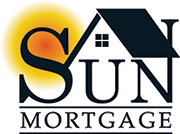Here is a glossary of mortgage terms
Below is a mortgage glossary of terms. There may be words listed that no longer apply in todays market. Please call us if you have any questions.
A B C D E F G H I J K L M N O P Q R S T U V W X Y Z
An amount equal to the replacement value of damaged property minus depreciation.
ADJUSTABLE RATE MORTGAGE (ARM) Also known as a variable rate loan, an ARM usually offers a lower initial rate than a fixed rate loan. The interest rate can change at a specified time, known as an adjustment period, based on a published index that tracks changes in the current finance market. Indexes used for ARMs include the LIBOR index and the Treasury index. ARMs also have caps or a maximum and minimum that the interest rate can change at each adjustment period.
ADJUSTMENT PERIOD The time between interest rate adjustments for an ARM. There is usually an initial adjustment period, beginning from the start date of the loan and varying from 1 to 10 years. After the first adjustment period, adjustment periods are usually 12 months, which means that the interest rate can change every year.
AMORTIZE Paying off a debt by making regular installment payments over a set period of time, at the end of which the loan balance is zero.
AMORTIZATION SCHEDULE Provided by mortgage lenders, the schedule shows how, over the term of your mortgage, the principal portion of the mortgage payment increases and the interest portion of the mortgage payment decreases.
ANNUAL PERCENTAGE RATE (APR) How much a loan costs annually. The APR includes the interest rate, points, broker fees and certain other credit charges a borrower is required to pay.
APPRAISAL A professional analysis used to estimate the value of the property. This includes examples of sales of similar properties.
APPRECIATION An increase in the market value of a home due to changing market conditions and/or home improvements.
ASSETS Everything of value an individual owns.
ASSUMPTION A homebuyer's agreement to take on the primary responsibility for paying an existing mortgage from a home seller.
B
BALLOON MORTGAGE
A mortgage loan with initially low-interest payments, but that requires one large payment due upon maturity (for example, at the end of seven years).
BUY DOWN MORTGAGE A mortgage loan in which one party pays an initial lump sum in order to reduce the borrower’s monthly payments.
C
CAPACITY
Your ability to make your mortgage payments on time. This depends on your income and income stability (job history and security), your assets and savings, and the amount of your income each month that is left over after you've paid for your housing costs, debts and other obligations.
CLOSING (CLOSING DATE) The completion of the real estate transaction between buyer and seller. The buyer signs the mortgage documents and the closing costs are paid. Also known as the settlement date.
CLOSING AGENT A person who coordinates closing-related activities, such as recording the closing documents and disbursing funds.
CLOSING COSTS The costs to complete the real estate transaction. These costs are in addition to the price of the home and are paid at closing. They include points, taxes, title insurance, financing costs, items that must be prepaid or escrowed and other costs. Ask your lender for a complete list of closing cost items.
COLLATERAL Property which is used as security for a debt. In the case of a mortgage, the collateral would be the house and property.
CONDOMINIUM A unit in a multi-unit building. The owner of a condominium unit owns the unit itself and has the right, along with other owners, to use the common areas, but does not own the common elements such as the exterior walls, floors and ceilings or the structural systems outside of the unit; these are owned by the condominium association.
CREDIT REPORT A document used by the credit industry to examine your use of credit. It provides information on money that you've borrowed from credit institutions and your payment history.
CREDIT SCORE A computer-generated number that summarizes your credit profile and predicts the likelihood that you'll repay future debts.
CREDITWORTHY Your ability to qualify for credit and repay debts.
D
DEED
A legal document under which ownership of a property is conveyed.
DOWN PAYMENT A portion of the price of a home, usually between 3-20%, not borrowed and paid at closing.
E
EARNEST MONEY DEPOSIT
The deposit to show that you're committed to buying the home. The deposit will not be refunded to you after the seller accepts your offer, unless one of the sales contract contingencies is not fulfilled.
EQUITY Ownership interest in a property after liabilities are deducted. Also referred to as your assets.
ESCROW A lender-held account where a homeowner pays money toward taxes and insurance of a home.
ESCROW ACCOUNT The actual account where the escrow funds are held in trust.
F
FIXED RATE MORTGAGE
GIFT LETTER
A letter that a family member writes verifying that s/he has given you a certain amount of money as a gift and that you don't have to repay it. You can use this money towards a portion of your down payment with some mortgages.
GOOD-FAITH ESTIMATE A written statement from the lender itemizing the approximate costs and fees for the mortgage.
H
HAZARD INSURANCE
Insurance coverage that pays for the loss or damage to a person’s home or property.
HOME INSPECTION A professional inspection of a home to determine the condition of the property. The inspection should include an evaluation of the plumbing, heating and cooling systems, roof, wiring, foundation, and pest infestation.
HOMEOWNER'S INSURANCE A policy that protects you and the lender from fire or flood, which damages the structure of the house; a liability, such as an injury to a visitor to your home; or damage to your personal property, such as your furniture, clothes or appliances.
HUD-1 SETTLEMENT STATEMENT A final listing of the costs of the mortgage transaction. It provides the sales price and down payment, as well as the total settlement costs required from the buyer and seller.
I
INDEX
The published index of interest rates used to calculate the interest rate for an ARM. The index is usually an average of the interest rates on a particular type of security such as the LIBOR.
INTEREST The cost you pay to borrow money. It is the payment you make to a lender for the money it has loaned to you. Interest is usually expressed as a percentage of the amount borrowed.
INTEREST ONLY MORTGAGE A mortgage where the borrower pays only the interest on the loan for a specified amount of time.
INVESTMENT PROPERTY A property not considered to be a primary residence that is purchased by an investor in order to generate income, gain profit from reselling or to gain tax benefits.
L
LIABILITIES
Your debts and other financial obligations.
LIEN A claim or charge on property for payment of a debt. With a mortgage, the lender has the right to take the title to your property if you don't make the mortgage payments.
LOCK-IN RATE A written agreement guaranteeing a specific mortgage interest rate for a certain amount of time.
M
MARGIN
A percentage added to the index for an ARM to establish the interest rate on each adjustment date.
MARKET VALUE The current value of your home based on what a purchaser would pay. An appraisal is used to determine market value.
MORTGAGE A legal document that pledges property to a lender as security for the repayment of the loan. The term is also used to refer to the loan itself.
MORTGAGE INSURANCE Insurance that protects lenders against losses caused by a borrower's default on a mortgage loan. Mortgage insurance (or MI) typically is required if the borrower's down payment is less than 20 percent of the purchase price.
P
POINTS
1% of the amount of the mortgage loan. For example, if a loan is made for $50,000, one point equals $500.
PRINCIPAL The amount of money borrowed to buy your house or the amount of the loan that has not yet been repaid to the lender. This does not include the interest you will pay to borrow that money. The principal balance (sometimes called the outstanding or unpaid principal balance) is the amount owed on the loan minus the amount you've repaid.
R
RATE CAP
The limit on the amount an interest rate on an ARM can increase or decrease during an adjustment period.
REFINANCE Paying off an existing loan with a newer, usually lower rate loan.
REPLACEMENT COST The cost to replace damaged personal property without a deduction for depreciation.
S
SERVICER
A firm that performs functions in support of a mortgage that include collecting mortgage payments, paying the borrower's taxes and insurance and generally managing borrower escrow accounts.
SHORT SALE The process in which a servicer works with a delinquent borrower to sell the house by a real estate agent prior to the foreclosure sale.
T
TITLE
The documented evidence that a person or organization has ownership of real property.
TRUTH-IN-LENDING ACT (TILA) Federal law that requires disclosure of a truth-in-lending statement for consumer loans. The statement includes a summary of the total cost of credit, such as the APR and other specifics of the loan.
U
UNDERWRITING
The process a lender uses to determine loan approval. It involves evaluating the property and the borrower's credit and ability to pay the mortgage.

